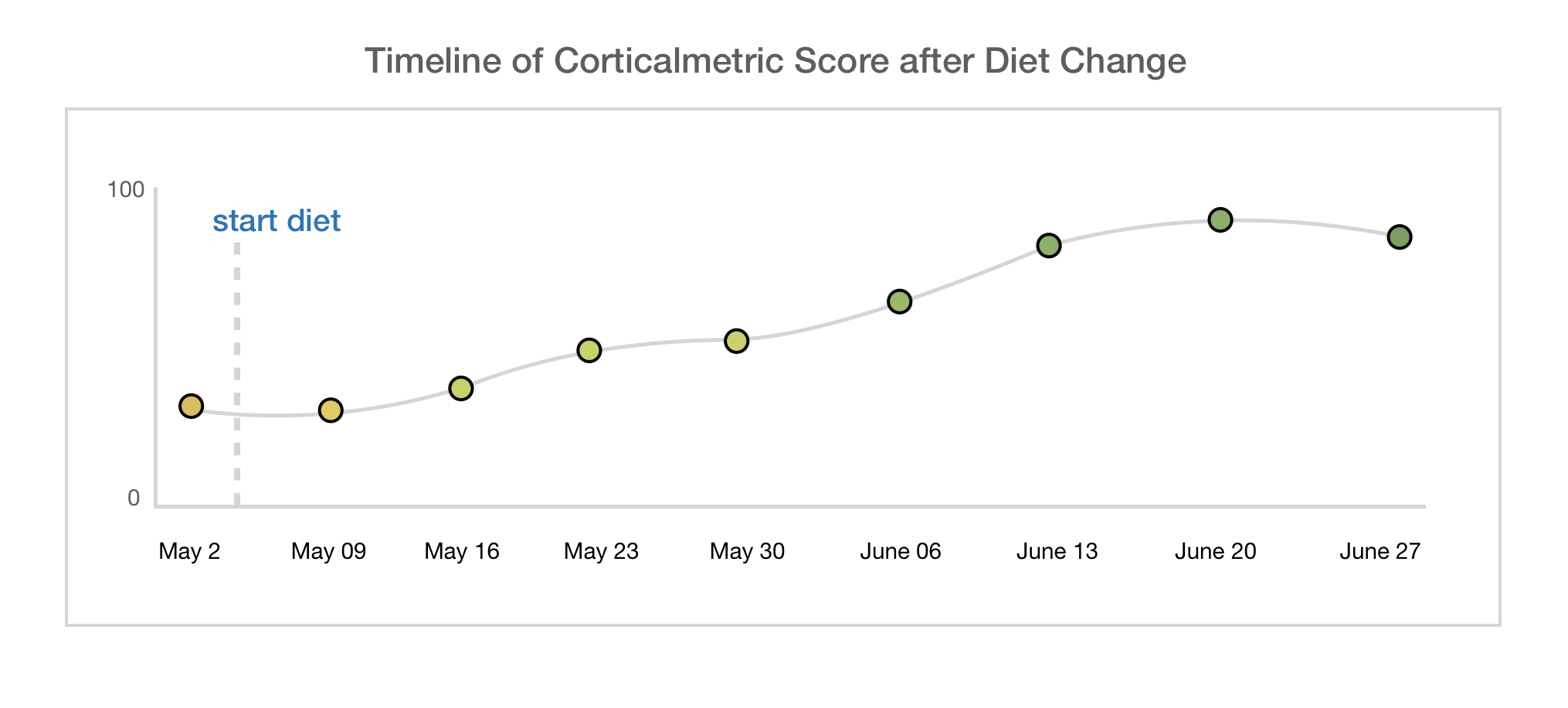Twenty years ago, I would have really benefited from having a Brain Gauge.
At a recent workshop, we were asked some important questions about the Brain Gauge scoring system:
"Can you really see a change with diet?"
"How fast do the changes appear?"
The speed at which your Brain Gauge scores change will depend on the type of lifestyle changes you are making. After beginning an elimination diet, it may be weeks or even months before the toxins have left your body and ceased impairing your nervous system.
Here is an example of a Brain Gauge user who eliminated gluten from their diet and tracked their changes by testing each week:

Other changes can have a more immediate impact on your brain health. Dextromethorphan - an active ingredient in most cough syrups - can significantly impair your Plasticity score within a few hours of consumption. Fortunately, we've found those changes to be short-lived, and subjects tend to regain their baseline Plasticity scores within 24 hours.
Many people underestimate the influence that diet can have on brain health.
Twenty years ago, out of nowhere, I began to experience all the symptoms of multiple sclerosis (MS): dizziness, cramping, loss of sensation in my hands and feet, and eventually heavily blurred vision. It was, as it were, a nerve-wracking experience.
After a bit of research I discovered that people in my demographic (Scandinavian descent) can develop these symptoms when exposed to wheat. I had been intolerant to gluten as an adolescent, but thought I had grown out of the condition. It appeared that wasn't entirely true.
When my vision started to blur, I decided it was time to take action. I read (with much squinting) as much as I could on alternative treatments for neurodegenerative conditions (Ashton Embry’s website is an excellent source of information) and in particular, I studied the promising effects of various diets. I then embarked on a strict 'paleo' diet, cutting out all dairy, sugar, and processed grains (such as wheat) and loading my plate with vegetables, lean meats, and healthy oils. Three months after starting this diet, all of my symptoms were gone.
I couldn’t help but think how lucky I was to (1) stumble upon an effective solution on my first try and (2) have the scientific background to understand what was happening to my brain. Even so, it would have been much easier if I'd had an objective way to measure my progress towards recovery. It also would have been easier to skip out on my favorite food groups (beer and pizza) if I'd been able to see the immediate negative effects they had on my brain health.
Occasionally, I did perform some tests on myself in the neurophysiology lab where I worked, but the equipment was expensive and complex, and the tests were not refined or even clinically validated.
I would have really benefited from having a Brain Gauge to track my recovery. Self-perception is subjective, and it's not a good way to assess brain health – especially when you're undertaking a lifestyle change that can take months to show effects, such as an elimination diet. You'll never really know if your brain is recovering if it (your brain) is the only tool you're using to measure that recovery. Seeing objective evidence of improvement makes it much easier to stay on course with whatever you're doing to optimize your brain health.
